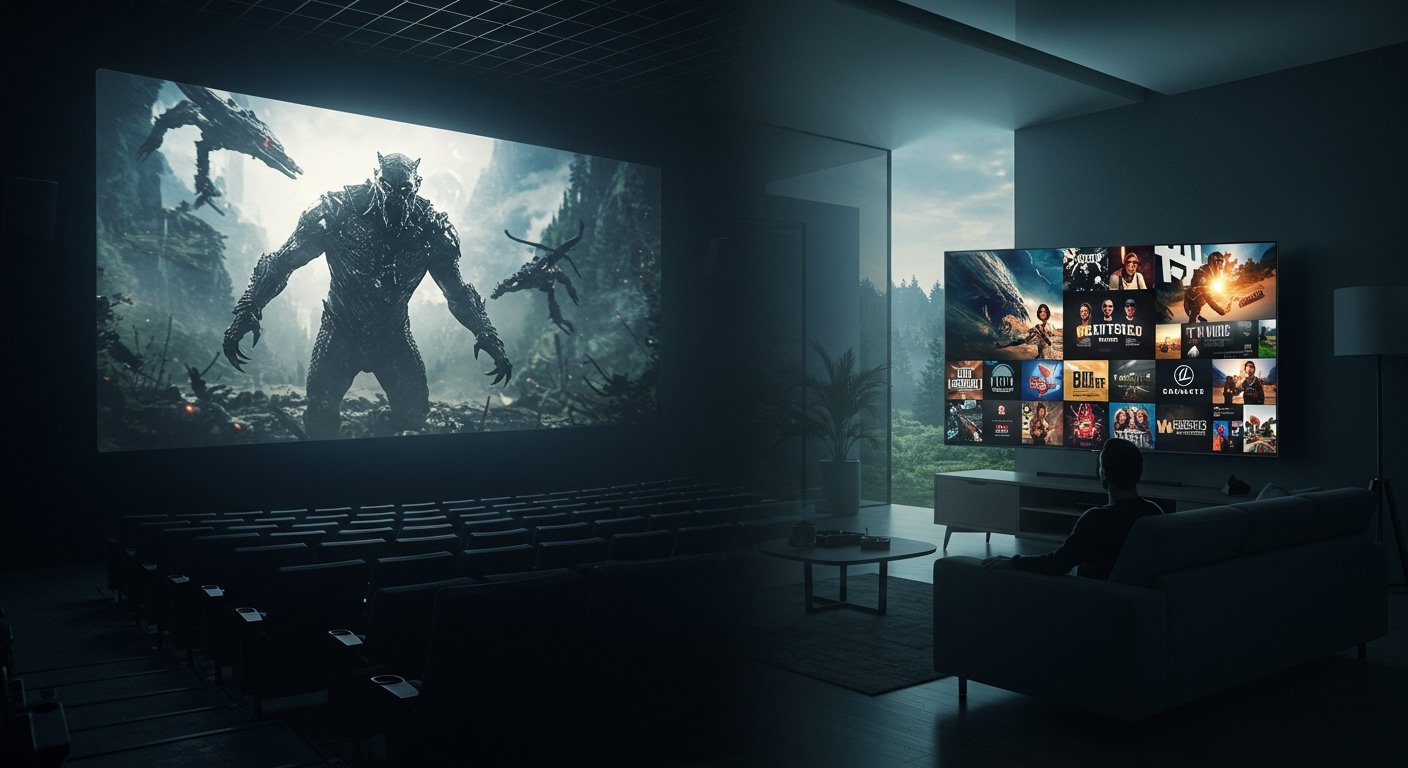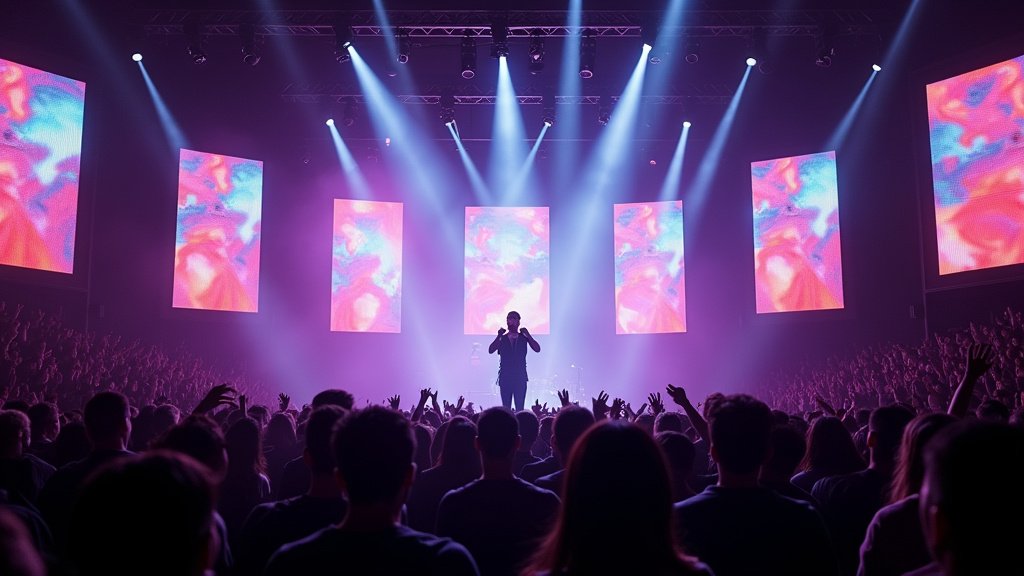When Ridley Scott announced that he was returning to the Colosseum for Gladiator II, one couldn’t help but raise an eyebrow—was it necessary to resurrect the world of Maximus Decimus Meridius? After all, Gladiator (2000) was a cinematic juggernaut, sweeping five Oscars, including Best Picture, and becoming a cultural touchstone. Yet, after years of swirling rumors, the ancient Roman arena is open for battle once again, promising high-stakes drama, personal revenge, and a whole lot of spectacle. Let’s take a deep dive into the epic journey that is Gladiator II.
The Plot: Enter Lucius, A New Gladiator with Old Scores to Settle
The film picks up years after the tragic fall of Maximus (played by Russell Crowe in the original), but instead of revisiting our beloved general in the afterlife—thankfully avoiding that rumored draft where Maximus returns as an immortal war god—we are treated to the rise of Lucius, played by Paul Mescal. Lucius, the son of Lucilla (Connie Nielsen), was a boy when we last saw him in Gladiator, standing in awe of Maximus’ courage.
Now a grown man, Lucius has been hidden away in Numidia by his mother to escape the corruption of Rome. But, as is the way with epic sagas, Rome comes for him in the form of General Marcus Acacius (Pedro Pascal), a tyrannical leader hell-bent on expanding his control. Lucius is captured, sold into slavery, and thrust into the very world that claimed Maximus—this time, the stakes are even higher as the empire is ruled by twin emperors, Caracalla and Geta, played with chilling precision by Fred Hechinger and Joseph Quinn.
The core of Gladiator II revolves around Lucius reclaiming his heritage, but it is also deeply tied to the twin themes of personal vengeance and collective justice. Inspired by the legend of Maximus, Lucius must battle not only for his freedom but to restore the honor of Rome, which has descended into chaos under the reckless rule of the emperors.
Star Power and Standout Performances
Paul Mescal’s portrayal of Lucius anchors the film, embodying a complex mix of innocence lost, moral conflict, and steely resolve. His performance does justice to the legacy of the original film without mimicking the iconic Russell Crowe. Lucius’ journey is one of internal conflict—torn between his thirst for revenge and a greater sense of responsibility to restore Rome.
Pedro Pascal, as General Marcus Acacius, brings charisma and menace to the screen, much like his Game of Thrones days as Oberyn Martell. His character is integral to Lucius’ journey, both as a literal oppressor and as a symbol of Rome’s decaying morals. Pascal’s General Acacius oozes arrogance, and his scenes bristle with tension, especially during his confrontations with Lucius.
Then there’s Denzel Washington as Macrinus, a wealthy arms dealer with gladiatorial ties who becomes an unlikely ally to Lucius. Washington’s gravitas and natural presence add weight to his role, crafting a character whose motivations remain intriguingly ambiguous. Is he simply helping Lucius for profit, or does he have a deeper vendetta against the empire? Washington’s presence on screen elevates the stakes every time he steps into a scene, making him one of the film’s most captivating characters.
The twin emperors, Caracalla and Geta, are portrayed as sadistic and power-hungry, clearly inspired by Joaquin Phoenix’s Commodus but with their own twisted, brotherly dynamic. The co-rulers are deliciously unhinged, and their constant infighting provides a significant source of drama.
Spectacle: Gladiator II Delivers Big on Action
Ridley Scott has never been one to shy away from lavish spectacles, and Gladiator II continues in that grand tradition. The fight sequences are breathtaking, ranging from one-on-one duels in the Colosseum to massive naval battles inside a flooded arena—a nod to the ancient Roman naumachia spectacles. Yes, Scott even manages to throw in white rhinos, because what’s a Roman spectacle without a few exotic beasts?
The visual effects and production design team clearly spared no expense. Every set, from the opulent palaces of the emperors to the gritty, sand-strewn gladiatorial rings, immerses the audience in a brutal yet beautiful ancient world. While some of the battle sequences may feel familiar to fans of the original, they’re bigger, bloodier, and more visceral than ever. The camera doesn’t shy away from the carnage, but Scott’s careful direction ensures that the violence never feels gratuitous—it’s all part of the film’s meditation on power, control, and legacy.
The Colosseum sequences are among the film’s crowning achievements. Scott ramps up the intensity with an array of new challenges for Lucius, including a jaw-dropping naval battle that transforms the arena into a watery grave. The combination of historical detail and creative flair strikes a balance between authenticity and Hollywood spectacle, delivering scenes that will be talked about long after the credits roll.
Themes: Power, Legacy, and the Echoes of History
Where Gladiator II shines is in its exploration of legacy—both personal and political. Lucius is not just fighting to avenge his family or regain his freedom; he is fighting to restore an empire. His internal conflict mirrors the external chaos of Rome, and the film does a commendable job of connecting the fall of one man with the downfall of a once-great civilization.
The film frequently harkens back to the memory of Maximus, but not in the way one might expect. Rather than relying on flashbacks or cameos (Russell Crowe is notably absent, save for a few moments of homage), Gladiator II allows Maximus’ legacy to loom large over the narrative. Lucius’ journey is not just about stepping out of Maximus’ shadow but also about questioning whether Rome is even worth saving.
Power dynamics play an equally crucial role, particularly in the relationship between Lucius and Acacius. While Acacius represents unchecked power and the corruption of Rome, Lucius is emblematic of Rome’s potential for redemption. Their clashes, both physical and ideological, are central to the film’s momentum, driving home the notion that the fight for power is ultimately a fight for Rome’s soul.
The Verdict: A Worthy Successor with Its Own Voice
While sequels often fail to live up to their predecessors, Gladiator II avoids many of the common pitfalls by striking a balance between honoring the original and forging its own path. It never feels like a simple cash grab or a rehash of Gladiator’s most successful elements. Instead, it builds on the world of ancient Rome, adding layers of political intrigue, personal vendetta, and spectacular action sequences.
The performances are stellar, particularly Paul Mescal’s nuanced take on Lucius, while the film’s visuals and set pieces are nothing short of breathtaking. Some might find the plot predictable at times, but what it lacks in narrative innovation, it more than makes up for in emotional weight and sheer entertainment.
In short, Gladiator II may not surpass the iconic status of its predecessor, but it stands tall as a worthy continuation of the story, proving that there is still plenty of glory to be won in the arena.
Frequently Asked Questions
Is Gladiator II a direct continuation of the original?
Yes, Gladiator II picks up years after the events of the original, following the journey of Lucius, the son of Lucilla, as he faces new challenges in Rome’s Colosseum.
Does Russell Crowe return in Gladiator II?
No, Russell Crowe does not reprise his role as Maximus. His character’s legacy, however, plays a pivotal role in shaping the motivations of Lucius.
Is Ridley Scott directing Gladiator II?
Yes, Ridley Scott returns to direct the sequel, bringing with him the same grand, historical vision that defined the first film.
Who are the main antagonists in Gladiator II?
The main villains are twin emperors, Caracalla and Geta, played by Fred Hechinger and Joseph Quinn, whose lust for power threatens Rome’s future.
How is Gladiator II different from the original?
While both films explore themes of power, revenge, and legacy, Gladiator II focuses more on the broader political implications of Rome’s decay and Lucius’ personal journey to reclaim his heritage.
Is the action in Gladiator II as intense as in the original?
Absolutely. The Colosseum fights, including a naval battle inside the arena, elevate the action to new heights.
Conclusion
Gladiator II triumphs as a standalone epic, brimming with thrilling action, political drama, and emotional depth. While it may not match the groundbreaking impact of the original, it offers a grandiose return to the brutal world of ancient Rome, leaving audiences undeniably entertained.




